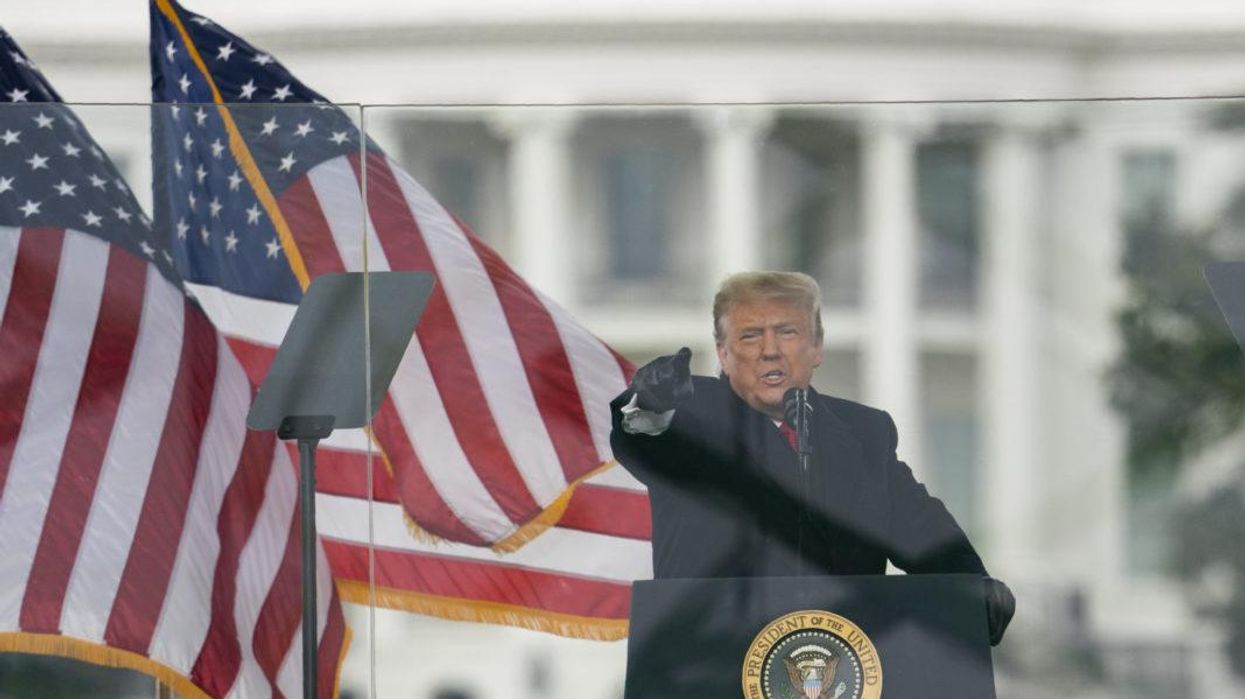Bipartisan List Of Former Lawmakers Urges Rejection Of Trump's Privilege Claims

Donald Trump
A group of 66 former members of Congress, including 22 Republicans, filed a legal brief on Thursday that urges a federal court to block former President Donald Trump's attempt to hide records relating to the Jan. 6 insurrection by his supporters at the U.S. Capitol.
Among the documents the bipartisan House select committee probing the violent and deadly attack at the U.S. Capitol is seeking from the National Archives are communications, calendars, schedules, and other materials from the executive office of the president and the office of the vice president from Jan. 6, when the mob of his supporters violently attacked law enforcement as they broke into the building to try to stop the certification of President Joe Biden's Electoral College victory.
Trump has sought to exert executive privilege over the documents, with his lawyers declaring in a lawsuit filed Oct. 18 against the committee, its members, and the National Archives and archivist that its investigation into the attack is "a vexatious, illegal fishing expedition."
The former lawmakers write in their brief:
From what is publicly known, it is clear that (1) Mr. Trump played an outsized—and likely central—role in orchestrating the events that led to the January 6th attack; and (2) the various means he used or contemplated are likely documented in the records the Committee seeks and are still not known. ... Under these circumstances, no personal interests of Mr. Trump or disputed and unresolved questions of executive privilege could possibly tilt the scales against disclosing these records to the Select Committee.
Among the former lawmakers who signed on to the brief are a handful of Republicans who recently served, including Florida's Carlos Curbelo, Wisconsin's Reid Ribble, and Louisiana's Charles Boustany. Among the Democrats are former Reps. Barney Frank of Massachusetts, Steve Israel of New York, and Henry Waxman of California.
Trump's stonewalling of the select committee is just one of the issues it is running into as it conducts its investigation.
Trump's former aide Steve Bannon is also citing Trump's executive privilege claim as a basis for refusing to hand over documents to the committee or to sit for a deposition.
In 2018, when Bannon invoked executive privilege before the House Intelligence Committee, ranking member Rep. Adam Schiff (D-CA) said, "The scope of this assertion of privilege, if that's what it is, is breathtaking. ... If the White House is permitted to maintain that kind of gag rule on a witness, no congressional investigation could ever be effective. So this obviously can't stand."
This time, the full House — including nine GOP members — voted on Oct. 21 to hold Bannon in criminal contempt to try to compel his compliance with the select committee's subpoena.
These legal challenges pose an existential threat to the committee's work.
Lawsuits take a long time to make their way through the courts. If Republicans win control of the House in 2022, the GOP could shut down the committee before the investigation is complete.
Trump employed a similar strategy to avoid investigations during his time in office, stonewalling Congress' impeachment proceedings and other probes into his taxes and finances so long that he lost reelection before they could be completed.
The brief filed by the former U.S. lawmakers notes what is at stake:
Accordingly, amici urge the Court to deny the request for a preliminary injunction so that the Select Committee and Congress may access the critical information to which they are entitled and which Congress needs to successfully exercise its legislative powers to protect our constitutional democracy from future autocrats and demagogues who seek to exploit weaknesses in the current legislative and constitutional framework—a framework that ensured the peaceful transition from one President to the next for more than two centuries but which is now vulnerable.
Published with permission of The American Independent Foundation.








